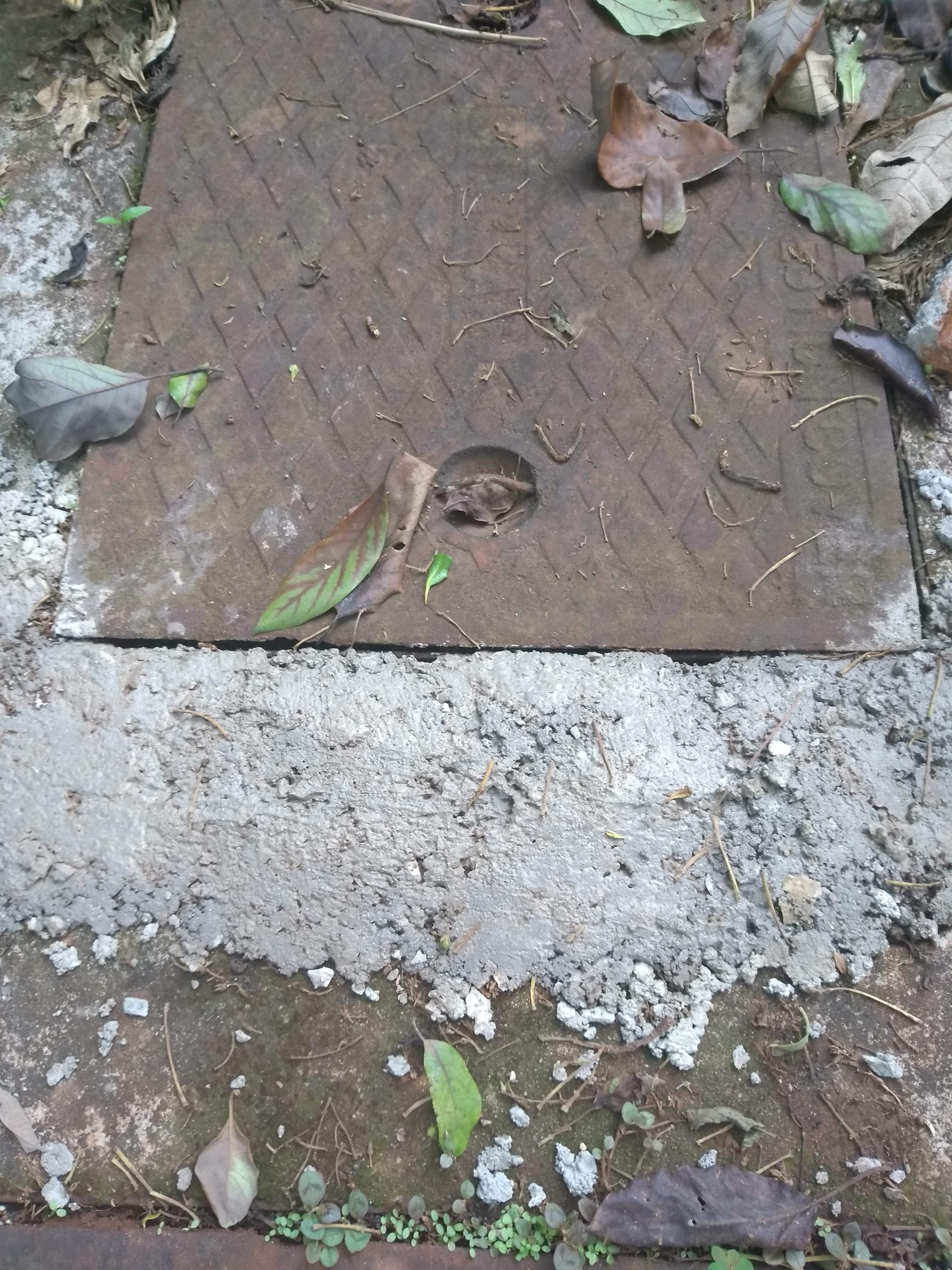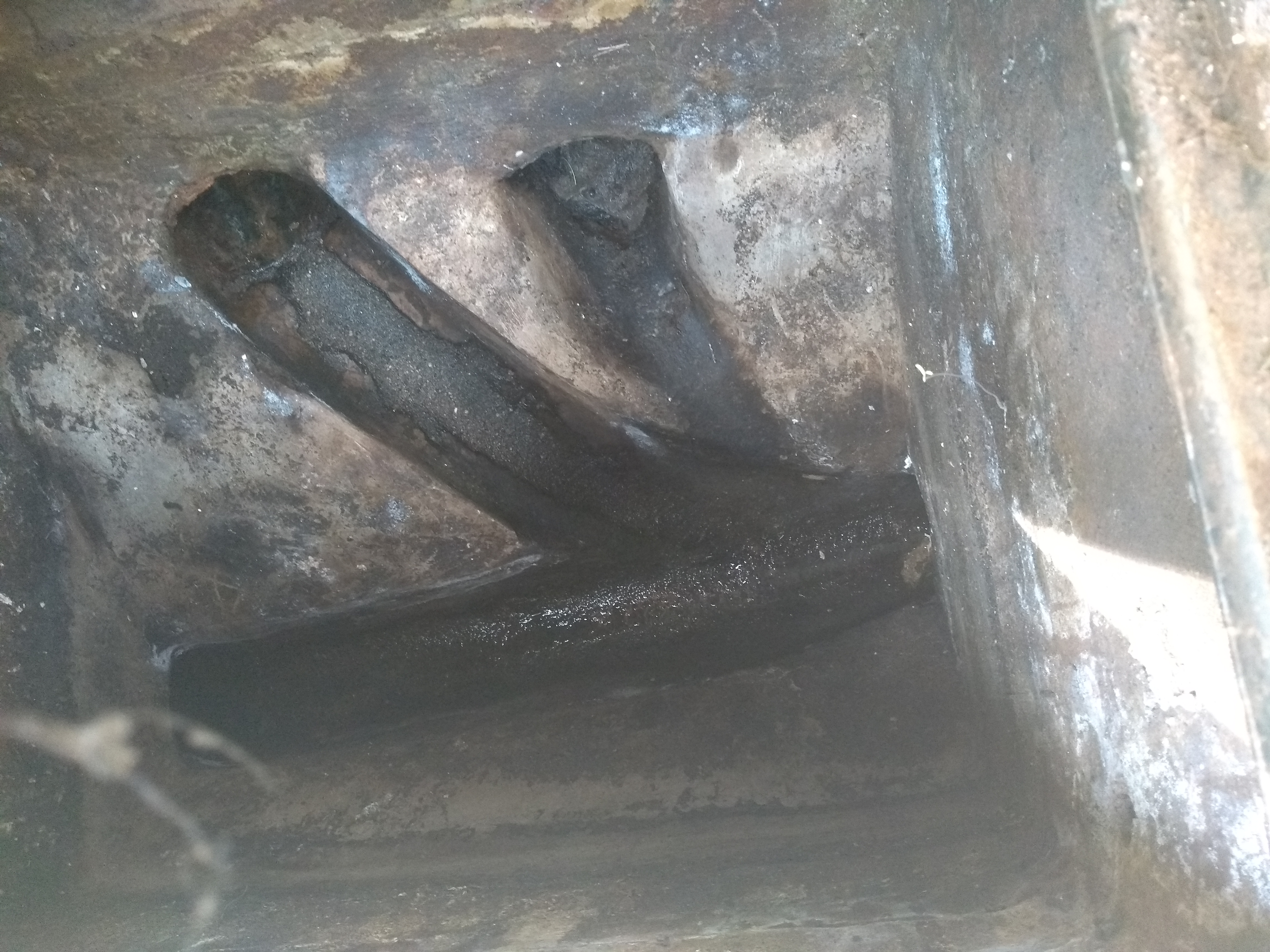I had read the stories from New York and London. These were, I insisted, first world problems. So what if flushable wet wipes were clogging sewers? So what if they didn’t actually dissolve? Clearly, those sewers were designed for fragile, first world poop.
Kenyan sewers were designed to handle African poop. Poop made from ugali and githeri, roasted maize and boiled eggs, mutura and nyama choma, barely cooked offal and overcooked mutton. Poop crawling with tapeworms and threadworms and all the other worms we had to memorize in Standard Six. Hard poop, accustomed to poverty and dehydration, to unregulated food and killer diseases. Tough, like African workers. Surely, flushable wet wipes made for delicate first world butts and sewers would not conquer Kenyan sewers.
The sewer is blocked. I am the problem.
The water flows from my mother’s bathroom through my bathroom, through the kitchen to the septic tank. Water flows easily from my mother’s bathroom, through her portion of the sewer. The plumber illustrated this flow. The access to my sewer is clogged: green, brackish, still. Nothing flows. Water from the kitchen flows to the septic tank. I am the problem. The great clogger. I have proved that Kenyan sewers fail.
That is not all.
The nice plumber, after struggling to unclog my passages—I am them, they are mine—decided to try something else. He went to the house’s septic tank and tried to unclog the sewer from there. On opening the septic tank, he found it full of dry soil. Rats had built little tunnels in and around the septic tank. They were playing.
Perhaps, I thought, I was not the problem. It was the rats! It was the septic tank full of dry soil! It was the years of neglect. It was not me.
But I was still the great obstruction. It was now a double job: to clear the soil from the septic tank so the water could flow through the sewer and to clear my clogged portion of the sewer.
The plumber rigged something, a long plastic tube with a piece of sacking packed at the end. He donned gloves. Little by little, he began to remove the un-flushable wet wipes. Some came out in clumps. Others came out one by one. A sad, wet, smelly pile. With each one, my sense of shame increased. “These are the problem,” he intoned every few minutes. “These are very bad,” he repeated. Wet wipe. “These are terrible.” Wet wipe. “These don’t flush.” Wet wipe. Wet wipe. Wet wipe. “These clog up the system.” Wet wipe. “You shouldn’t be using these.” Wet wipe. Wet wipe. Wet wipe.
A sad mountain of imported wet wipes, available from one store in Nairobi, unable to navigate sewers designed for African poop. My gift to the world. My shame.
As each clump emerged, a little more water began to flow. Unclogging was happening. Water was flowing. The ripe smell of old sewage filled the house. We closed the windows. The smell continued to filter in, to flavor our food and our moods.
Once the plumber had assembled a little hill of wet wipes, he proceeded to dig the septic tank. A bucket was mobilized. Filled with soil. More soil. More soil. Soil full of rat droppings, assorted plastics, old pads, even pieces of old clothing including underwear. Who had flushed these things down the toilet? Were they not the real culprit? Was I not absolved?
Except, they were in the septic tank. Clogging it, making sure nothing flowed toward it, but not causing the blockage between my mother’s bathroom and the kitchen sink.
As the plumber worked, I stood next to him, bearing witness to my work, to the failure of imported wet wipes to navigate African sewers, to the failure of African water pressure to generate enough power to dissolve un-flushable wet wipes that did not dissolve in London and New York, to the failures of those people who built this house in the late 60s and did not anticipate that we would need systems that could handle wet wipes, to all these failures of imagination and invention that clogged up my portion of the sewer.
I could no longer bear to look at the wet wipes. At my folly. I went into the house and hid.
When the plumber was finally done, when he had left, I donned a double pair of latex gloves, sacrificed one of my favorite buckets, a small red one, and approached the small hill of wet, stinky, un-flushable wet wipes. I did not hold my breath. This was going to be penance. I gathered them into the bucket, one by one, green and squishy, slimy and pungent, one by one. Piled them into a bucket. Walked them to a portion of the backyard that we don’t use. I grabbed a spade. Dug a hole. Poured them in. Grabbed some wood ash. Covered them.
I then went online to figure out how to switch to the bucket method.


Keguro Macharia






